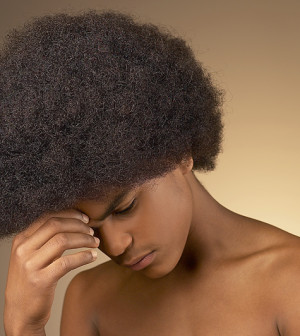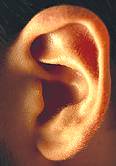- The Best Time of Day to Drink Bone Broth to Maximize Health Benefits
- 8 Ways to Increase Dopamine Naturally
- 7 Best Breads for Maintaining Stable Blood Sugar
- Gelatin vs. Collagen: Which is Best for Skin, Nails, and Joints?
- The Long-Term Effects of Daily Turmeric Supplements on Liver Health
- Could Your Grocery Store Meat Be Causing Recurring UTIs?
- Are You Making This Expensive Thermostat Error This Winter?
- Recognizing the Signs of Hypothyroidism
- 10 Strategies to Overcome Insomnia
- Could Artificial Sweeteners Be Aging the Brain Faster?
Could Sleep Apnea Affect Your Hearing?


Sleep apnea may not only affect the quality of your sleep. New research suggests that the sleep disorder may be linked to hearing loss as well.
The study found that sleep apnea was associated with hearing impairment at both high and low frequencies. That finding held true even after the researchers adjusted the data for other possible causes of hearing loss.
These findings give further support to the idea that sleep apnea likely doesn’t occur in isolation. Instead, it may be a sign of other underlying health conditions, the researchers said.
“Sleep apnea is more of a systemic and chronic disease than just something that happens when you’re sleeping,” said one of the study’s authors, Dr. Neomi Shah, an associate director of the pulmonary sleep lab at Montefiore Medical Center in New York City.
“It probably affects multiple different organs, so I would probably urge we start thinking about sleep apnea as more like a chronic disease with vascular and inflammatory issues,” Shah added.
Sleep apnea is a common disorder that affects about 18 million Americans, according to the National Sleep Foundation. Typically signaled by snoring with periodic gasping or “snorting” noises, sleep apnea interrupts sleep and can cause excessive daytime fatigue and other symptoms. The condition also has been associated with generalized inflammation, cardiovascular and endocrine problems.
What might the connection be between sleep apnea and hearing loss? It might be a combination of factors that cause inflammation and abnormal functioning in the blood vessels, according to Shah. “The ear is prone to this kind of injury,” explained Shah.
The study tapped data from almost 14,000 U.S. participants in the Hispanic Community Health Study/Study of Latinos. About 53 percent were women and on average the subjects were 41 years old. All completed in-home sleep studies and audiometric (hearing) testing.
About 10 percent of the study volunteers had sleep apnea. Around 30 percent had some form of hearing impairment, according to the study.
The researchers took into account age, gender, Hispanic/Latino backgrounds and health-related issues such as high blood pressure, diabetes, fat levels in the blood, cigarette and alcohol use, history of hearing loss or snoring, and noise exposure.
People in the study were more likely to have hearing impairment if they were of Cuban and Puerto Rican backgrounds, had a higher body mass index (an indication of being overweight), were people who snored, or had been diagnosed as having sleep apnea.
The study authors found that sleep apnea was associated with a 31 percent increase in high frequency hearing impairment and a 90 percent increase in low frequency hearing impairment. Sleep apnea was also linked to a 38 percent increase in both high and low frequency hearing loss. Speech tends to fall in the low frequency range, according to Shah.
The research is slated to be presented May 20 at the American Thoracic Society annual meeting in San Diego, Calif. Because the study has not yet been published in a peer-reviewed journal, the data and conclusions should be viewed as preliminary.
Some experts urged caution in interpreting the results of the study, however.
“The number one thing I always say is, correlation is not causation; it doesn’t mean if you have sleep apnea you’re at risk for hearing impairment,” said Rebecca Spencer, a neuroscientist and associate professor in the department of psychological and brain sciences at the University of Massachusetts, Amherst. “You wouldn’t know if one comes before the other: sleep apnea appears before hearing loss, or hearing loss appears before sleep apnea and maybe they don’t come together at all. They may not be related except by a third factor.”
Because a possible link has been discovered between sleep apnea and hearing loss, the next step should be a smaller study that looks more closely at the question of whether sleep apnea actually causes hearing loss, said Spencer.
She also pointed out that the data drew only from people of Hispanic and Latino descent. It would be important to look at the association between hearing loss and sleep apnea among a broader ethnic and geographical group, she added.
Only one thing can be concluded from the study, Spencer said: “There is the potential that treating sleep apnea may improve hearing loss.”
Shah, the research author, said people with sleep apnea should be screened for hearing impairment since it has been shown to be associated with the disorder. “Get evaluated,” she urged.
More Information
Learn more about sleep apnea from the U.S. National Library of Medicine.
Source: HealthDay
Copyright © 2026 HealthDay. All rights reserved.










